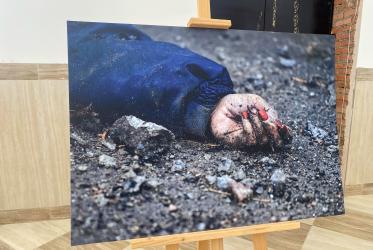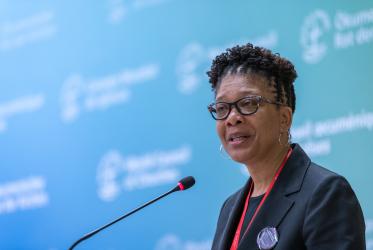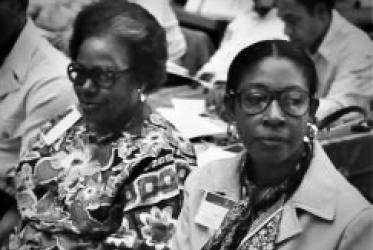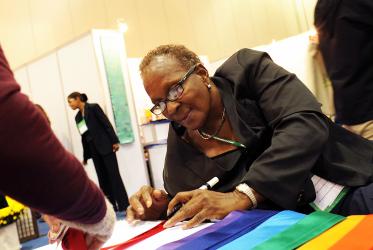Displaying 1 - 20 of 124
New WCC appointments reflect strong global fellowship
10 April 2024
As femicide cases rises, Kenyan religious leaders move to act
06 February 2024
Tackling sexual violence in war
14 December 2023
Recommended Practices to Combat HIV-Related Stigma
A Guidebook for Local Faith Communities
05 October 2023
Faith Sector Implementation of the Global AIDS Strategy
05 October 2023
Theological education in Africa promotes social transformation
03 November 2022
Christ’s Love (Re)moves Borders – GETI 2022 in images
13 September 2022
















